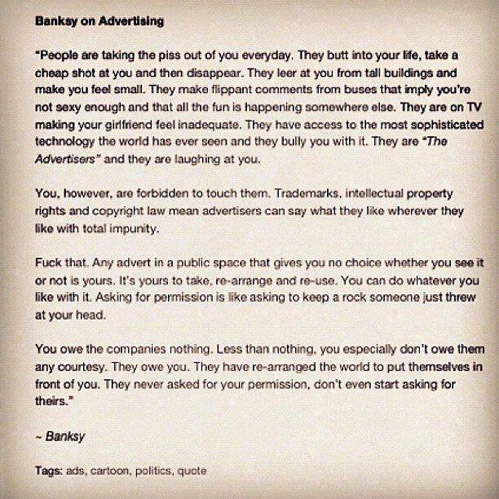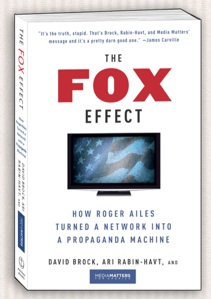Sunrise from my kitchen window this morning.
Video using iLapse app for iPhone.
Thanks to Photographer Paul Le Comte @five15design
Sunrise from my kitchen window this morning.
Video using iLapse app for iPhone.
Thanks to Photographer Paul Le Comte @five15design
NZ First opts out of constitutional review
New Zealand First is refusing to take part in the Government’s constitutional review.
The review is looking into matters such as the size of Parliament, Maori representation, the role of the Treaty of Waitangi and whether New Zealand needs a written constitution.
But New Zealand First leader Winston Peters says it is sham designed to sneak the principles of the Treaty of Waitangi into all laws.
He says the constitutional review is a political stunt from the National and Maori parties, and is not designed to give people more say in the country’s democracy.
Mr Peters says New Zealand First has declined an invitation to nominate a party member to take part in the review, which is due to report back to the Government by the end of 2013. — Radio NZ News
This represents New Zealand First policy, as enunciated at Kelston during the General Election campaign.
I guess the question is: does a NZ First ‘ boycott’ invalidate the process fatally? I don’t think so…
-P
I heard New Zealand Cricket Players’ Association boss Heath Mills describe the allegations of (un-named) Kiwi cricketers being involved in match-fixing as not credible “whatsoever”.
“These are unsubstantiated claims from people of ill repute — known criminals…”
Reminds me of some bloggers.
-P
Remember Cher Lloyd? The 2010 X-factor UK contestant I liked? (last mentioned here) … Well, here’s her just-released song Want U Back…
Manufactured pop, likeable, with hooks in the chorus. Lyrically, it’s shades of April Lavigne’s (I don’t like your) Girlfriend And why not? Pop based on teenage angst will never die. Good stuff.
Good luck to her. Great to see she’s keeping at it.
– P
There’s commentary and discussion about the fact that Apples’ new iPhoto for iOS released this week utilizes mapping services that aren’t directly provided by, ahem, Google.
I remember watching a Tina Fey interview/appearance at the Google complex where she was jeered by the Google-ites for mentioning in response to a question that she used ” …an iPhone, and an iPad …”, leading Eric Schmidt to reprove his staff along the lines of: “Come on, people, we make lots of software for those products…”
The integration of Google maps, etc. on the original iPhone of course dates back to when Schmidt was on Apple’s board. (Industrial espionage, anyone?)
Interesting — but not surprising — that Apple is making a move now to loosen the collaboration. Privacy issues aside, lawsuits and patent disputes aside, it’s extraordinary how long the ‘frenemy’-ship has lasted.
Is web search next? I wonder.
As Geoff Duncan writing at Digital Trends points out, there’s a cost — and a strategy — behind ‘free’…
The price of free
It’s important to note that of all the major digital map-makers, only Google was offering access to its maps for free. Firms like Navteq and TeleNav recoup their investments by sell their mapping services to third parties — Navteq powers Garmin GPS units and Bing Maps, for example; TeleNav sells its own GPS and powers things like MyTouch Ford in-vehicle systems. Google, however, chose to zig instead of zag: It offered its digital mapping services for free to essentially anybody who wanted them. The idea was to make Google’s online mapping service a de facto standard for digital maps on the Web and in mobile devices. Once Google had established a serious presence in the digital mapping marketplace, it would figure out a way to monetize the service.
Apple isn’t afraid to pay license fees when that provides an optimum solution for users (consider integrating Adobe’s PDF into OSX’s printing services — fantastic).
Perhaps they’ve learned to see Google coming?
– P
UPDATE: The comments stream on Geoff Duncan’s post indicates Google maps aren’t free to developers …
In the spirit of writer Philip K Dick, here’s an examination of sentience … more self-aware than most bloggers?
 “I’m a sort of merchandise, is that right?”
“I’m a sort of merchandise, is that right?”
via Kara Swisher Allthingsd with thanks. Made me think.
Whatever Apple announces for today’s (US Time) iteration of the iPad device* (and crucially, when compared to Android, the platform) the penetration of Apple’s tablet is astonishing.
Presidential briefing Jan 2012:
Via John Gruber
* Check it out at TUAW.com: Apple announces third generation iPad starting at [US]$499 (updated)
A nice article by Om Malik ’bout technology bringing connection.
Apple is about to introduce a new iPad. Good — for I need to buy a new one. I left my old one with my mother. When visiting my folks in India, I decided to leave my Macbook Air at home — I didn’t want to write and just wanted to spend some quality time with the family. Instead, I carried my iPad 2. (I don’t leave home without it.)
When at home, I did a FaceTime call with my siblings who also live overseas. I handed over the iPad to my mom. She had this look of amazement, one of pure unadulterated joy as she chatted with her grandson.
Being a broadband nerd who cannot stop thinking and talking about the need for speed and connectivity, I felt this moment captured essentially what I, and by extension GigaOM, am all about — connectedness and the change it brings. For once, the technology didn’t matter. …

Text in footnote
This, [allegedly] from brilliant UK street artist Banksy, made me think.
The sentiment (“any advert in a public space that gives you no choice whether you see it or not is yours. It’s yours to take, rearrange and reuse.” … “They have rearranged the world to put themselves in front of you. They never asked for your permission, don’t even start asking for theirs.“) … is, in conflict with the Law, including the electoral act, I guess.
Remember the campaigns of “defacing” electoral hoardings that were such a part of the 2011 election? The highest profile was a sticker campaign targeting National billboards: plastering “The Rich Deserve More”, “Drill it, Mine it, Sell it” slogans on the hoardings with stickers designed to look like part of the campaign.
There were also instances of stickers on hoardings that altered a Labour candidate’s slogans to “Working Hard for Cock” Or “Working Hard for Men” on Labour hoardings.
But the point Banksy makes — that advertising billboards and placards interrupt our world without our permission; therefore, why shouldn’t we have the right to ‘use’ or ‘rearrange’ them to make statements of our own — is worth considering.
Believe me, I’m sympathetic to the argument ‘Our volunteers put a lot of effort into erecting those political billboards and producing them cost a lot of money’. (For many years I had an illuminated sign outside my business premises which was routinely vandalised — never in a clever or remotely artistic way.) Cheap vandalism like smashing poltical advertising hoardings, spray bombing them, setting fire to them or daubing/scratching swastikas or nasty slogans into them is crap.
But aside from such vandalism, what’s to stop a citizen appropriating someone’s signage (including mine or some other advertiser’s) to make their own political or artistic statement?
I remember John Banks supporter Cameron Slater frothing at the mouth about an underground (i.e. not ‘authorised’ by a political party) and short-lived plastering of green post-it notes on a John Banks hoarding. The partisan blogger emoted tribal outrage at the horror of lawlessness (having previously hooted about a Labour candidate’s ‘cock’ slogan as ‘funny campaign graffiti’) and nonsensically attempted to smear the Green Party … without any apparent foundation, which I criticized at the time.
Given the artist Banksy’s manifesto on appropriating advertising messages in ‘public space’ outlined above, I’m starting to see a different aspect of this.
The ACT Party’s ‘Vote for John Banks’ hoarding was in a public space (albeit on a presumably hired trailer parked in presumably rented space at the edge of a presumably privately-owned used car yard in Market Road).
Was it a fair ‘target’ for a minor and very temporary ‘defacement’ by a citizen who wanted to use it as a platform for their election season advocacy and statements? Whoever they were, it would be a stretch to describe their short-lived, low-impact (see photo) gesture as vandalism, in my view.
What about the more orchestrated ‘The Rich Deserve More’ stickers? Same principle, but the scale of the campaign, the permanence of the defacement, the damage to the National hoardings when the stickers were removed make me see it somewhat differently. Banksy may see no difference.
How do you see it?
– P
Updated with pix and quote.
People are taking the piss out of you everyday (sic). They butt into your life, take a cheap shot at you and then disappear. They leer at you from tall buildings and make you feel small. They make flippant comments from buses that imply you’re not sexy enough and that all the fun is happening somewhere else. They are on TV making your girlfriend feel inadequate. They have access to the most sophisticated technology the world has ever seen and they bully you with it. They are The Advertisers and they are laughing at you.
You, however, are forbidden to touch them. Trademarks, intellectual property rights and copyright law mean advertisers can say what they like wherever they like with total impunity.
Fuck that. Any advert in a public space that gives you no choice whether you see it or not is yours. It’s yours to take, re-arrange and re-use. You can do whatever you like with it. Asking for permission is like asking to keep a rock someone just threw at your head.
You owe the companies nothing. Less than nothing, you especially don’t owe them any courtesy. They owe you. They have re-arranged the world to put themselves in front of you. They never asked for your permission, don’t even start asking for theirs.
– Banksy
I was sure I’d posted this earlier … and even linked to it, but it seems to have disappeared, so … here you go:
Douchebag Siri: the Fixed Apple iPhone Rock God Commercial
and here’s the original:
—
I posted a tougher one here: ‘Poor Siri caught up in an argument‘
The Washington Post’s E.J Dionne shares his opinion…
Santorum: Weird extremism, or shrewd politics?
By E.J. Dionne Jr.
Just when you thought that Rick Santorum had gone as far toward social-issue right as he possibly could, he takes several steps farther off the edge. His statement that John F. Kennedy’s historic 1960 speech on religious tolerance made him want to “throw up” and his declaration that President Obama is a “snob” for wanting kids to go to college took him to places that even very conservative Republicans dare not go.
It’s true that Santorum’s criticism of Kennedy’s speech echoes views common on the Catholic right. (For one of the very best and most thoughtful discussions of JFK’s speech, check out the transcript of this excellent event at Fordham University’s Center on Religion and Culture.)
But Santorum’s rather disgusting “throw up” line was, to say the least, very un-presidential. And if Santorum is seeking votes in Michigan today from older Catholic Reagan Democrats — and Catholics who converted to the GOP in the Gipper’s time — attacking the nation’s first and only Catholic president seemed very unwise. Many of these voters were once John F. Kennedy Democrats.
…
He polarizes people, that Rick Santorum (why else the Google bombing on his name?)
Observers wedded to a horse race or cock-fight model of the process (which is, I think, a fair view) are licking their lips at the drama of Mitt Romney’s ‘inevitability’ as GOP candidate being roiled.
Shades of the Hilary Clinton vs Obama primary contest.
I love observing American politics (…when it doesn’t make me want to throw up).
– P
 We discuss partisan misinformation campaigns — foreign and domestic — here on ThePaepae.com from time to time. Recently we discussed the Islamophobia campaign led by political ‘influencers’ and networkers (see Misinformation experts.)
We discuss partisan misinformation campaigns — foreign and domestic — here on ThePaepae.com from time to time. Recently we discussed the Islamophobia campaign led by political ‘influencers’ and networkers (see Misinformation experts.)
But the giant of twisted ‘news’ coverage has to be Fox News. Here’s an excerpt of The Media Matters for America book about Fox News. It’s arrival has been heralded and presaged by all sorts of dirty smears by America’s right wing proxies and attack dogs. Attack, they say, is the best form of defence.
Read the first few pages here at scribd.com
… or here:
The Fox Effect by Media Matters for America, David Brock and Ari Rabin-Havt (Excerpt)
For those interested, here’s Michael Coote’s very worthwhile article touching on the political management of the National government’s intended privatisation of State Owned Enterprises …
Read it at National Business Review: Privatisation goes into panic mode
– P
I was sorry to see this …
Article here at stuff.co.nz
As I said when the Lombard Finance charges were laid, I had quite a bit to do with Doug Graham and Bill Jeffries as cabinet minsters when I was a journo in the Press Gallery. I liked them both.
This result will give pause for thought to Wyatt Creech and John Luxton, two former cabinet ministers who were at one time board members of Mark Bryers’ crooked Blue Chip property … scheme. I heard the liquidator is going after them.
[Blue Chip companies Liquidator Jeff] Meltzer said those named in the claim included Mark Bryers, the Blue Chip boss bankrupted in 2009, former Cabinet ministers Wyatt Creech and John Luxton, and ex-chairman Jock Irvine. But many others were also named, he said, refusing to issue a list.
– P